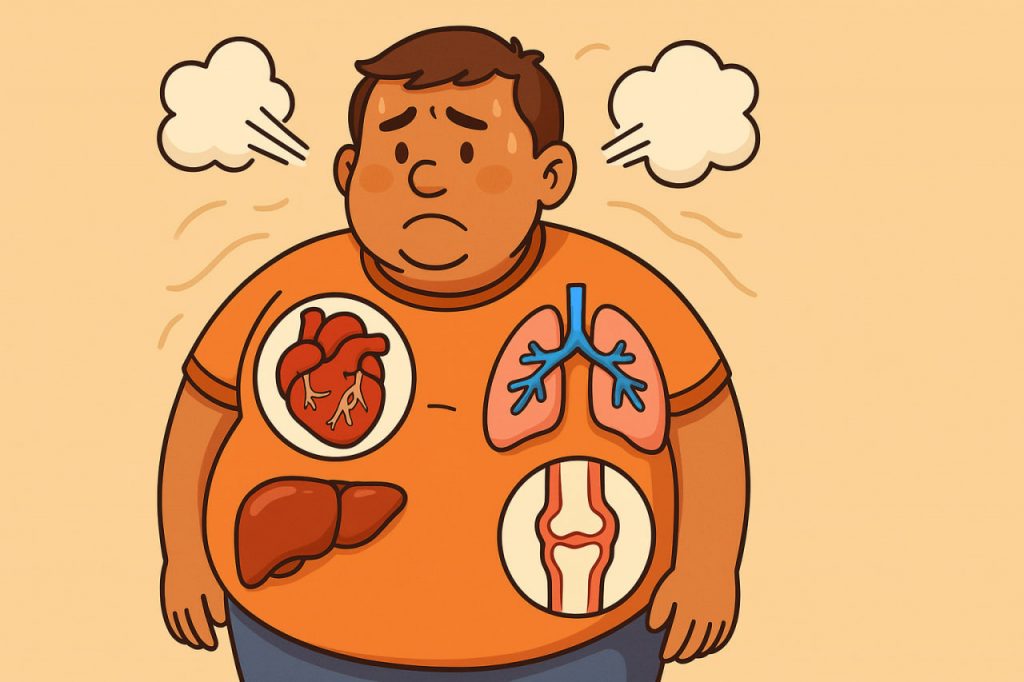Obesity is a condition where excessive body fat accumulates to the point that it negatively affects health. It develops when energy intake (food and drink) regularly exceeds energy expenditure (physical activity and metabolism). Obesity is more than just a cosmetic issue—it has profound effects on nearly every organ and system of the human body.
Impact on the Cardiovascular System
Excess fat increases the workload on the heart, forcing it to pump harder to supply blood to a larger body mass. Over time, this raises the risk of:
- High blood pressure (hypertension)
- Atherosclerosis (narrowed arteries)
- Heart attack and stroke
Obesity also increases cholesterol and triglyceride levels, making cardiovascular disease one of the leading risks.
Effects on the Endocrine System
Obesity disrupts the body’s hormonal balance, often leading to insulin resistance. This condition prevents cells from using insulin properly, which can cause type 2 diabetes. Additionally, fat tissue produces hormones and inflammatory chemicals that disturb metabolism and appetite regulation.
Impact on the Digestive System
The liver is highly affected by obesity. Excess fat often leads to non-alcoholic fatty liver disease (NAFLD), which can progress to cirrhosis or liver cancer. Obesity also increases the risk of gallstones and acid reflux.
Effects on the Musculoskeletal System
Carrying excess weight puts strain on bones, joints, and muscles. This often results in:
- Osteoarthritis (especially in knees and hips)
- Back pain
- Reduced mobility and flexibility
Impact on the Respiratory System
Fat deposits around the chest and abdomen can limit lung expansion, leading to breathing difficulties. Obesity is strongly linked with sleep apnea, a disorder where breathing repeatedly stops during sleep, lowering oxygen supply to the body.
Influence on Mental Health
Obesity often has psychological and emotional consequences. Many people experience:
- Depression and anxiety
- Low self-esteem
- Social stigma and discrimination
These factors can worsen unhealthy habits, creating a difficult cycle to break.
Increased Risk of Cancer
Excess body fat is associated with higher risks of several cancers, including breast, colon, pancreatic, and liver cancer. Chronic inflammation and hormonal imbalances caused by obesity contribute to this increased risk.
Conclusion
Obesity affects nearly every organ system, from the heart and liver to the joints and lungs. It raises the risk of diabetes, cardiovascular disease, cancer, and emotional health problems. Preventing and managing obesity through balanced nutrition, physical activity, and medical guidance is essential for long-term health and well-being.
Glossary
- Insulin resistance – when cells stop responding effectively to insulin, raising blood sugar.
- Non-alcoholic fatty liver disease (NAFLD) – fat buildup in the liver not caused by alcohol.
- Atherosclerosis – narrowing of arteries due to plaque buildup.
- Osteoarthritis – joint disease caused by wear and tear.
- Sleep apnea – sleep disorder where breathing repeatedly stops during sleep.


